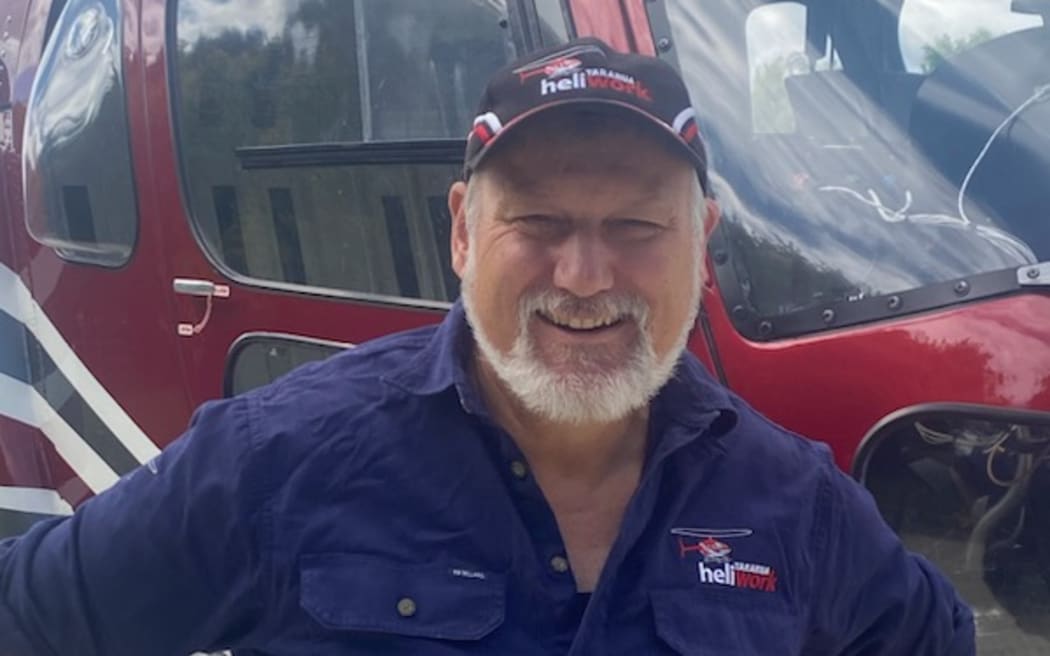
Tararau Heliwork pilot Dave Bramwell-Cooke. Photo: Supplied
Helicopter crews in Hawke's Bay are flying generators that will be used to reboot cellphone towers into remote locations.
Wairarapa Helicopters owner Tim Williams had a crew plucking people from parts of Hawke's Bay which were still flooded on Tuesday.
"I just spoke to one of the boys up there before and they said they picked four people on the house roof at about lunchtime."
He did not know if they had been up there all night.
Tararau Heliwork pilot Dave Bramwell-Cooke spent all day flying generators to farms, helping plug the many holes in the electricity network.
"I'll tell you what, if you were selling generators, they'd be worth gold at the moment," Bramwell-Cooke said.
"I just heard one of the guys saying there was a fella come down from Hawke's Bay and bought basically the shop-load of generators out of some place down here this afternoon - everything.
"I mean, people are just going to be screaming for it, because otherwise they're going to be without power for a long time."
He had been gobsmacked while flying over damaged farms and roads around Pongaroa between Dannevirke and the coast.
"It's like a bomb's gone off.
"It's just devastating, you know, the hills are basically gone, they've slid down."
Williams had to hustle south from Hawke's Bay to fly some people who needed medications from Castlepoint to Masterton.
This, after a similar urgent mission 24 hours earlier to an elderly person in Pongaroa.
"We shot out late last night and dropped that off to him - they were pretty happy to see the pills," Williams said.
"We were pretty lucky to get there which was good."
His two crews then made return flights to Castlepoint, delivering half a dozen generators to get cellphone towers restarted.
"Six will be all that they need just in this area, there'll be more to do tomorrow."
He expected the cellphone sites to be up and running fairly quickly.
National Emergency Management Agency advice:
- Put safety first. Don't take any chances. Act quickly if you see rising water. Floods and flash floods can happen quickly. If you see rising water do not wait for official warnings. Head for higher ground and stay away from floodwater.
- Do not try to walk, play, swim, or drive in floodwater: even water just 15 centimetres deep can sweep you off your feet, and half a metre of water will carry away most vehicles.
- If you have evacuated, please stay where you are until you are given the all-clear to go home.
- If you don't need to evacuate, support those who do by staying home, staying off roads and staying safe.
- If you are not able to contact your whānau in the heavily affected areas go to Police 105 website and complete the inquiry form or phone 105 and remember to update if you reconnect through other means.
- Throw away food and drinking water that has come into contact with floodwater as it is often contaminated and can make you sick.
- If you are without power eat the food from your fridge first, then your freezer. Then eat the food in the cupboard or your emergency kit.
- People should stay up to date with the forecasts from MetService and continue to follow the advice of civil defence and emergency services.
- A National State of Emergency is in place for an initial period of seven days and applies to regions that have declared a local State of Emergency.

